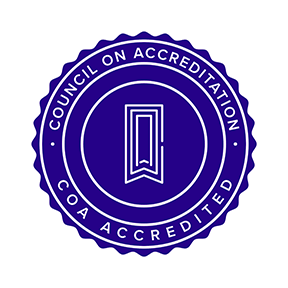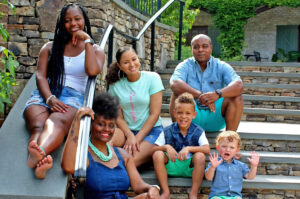
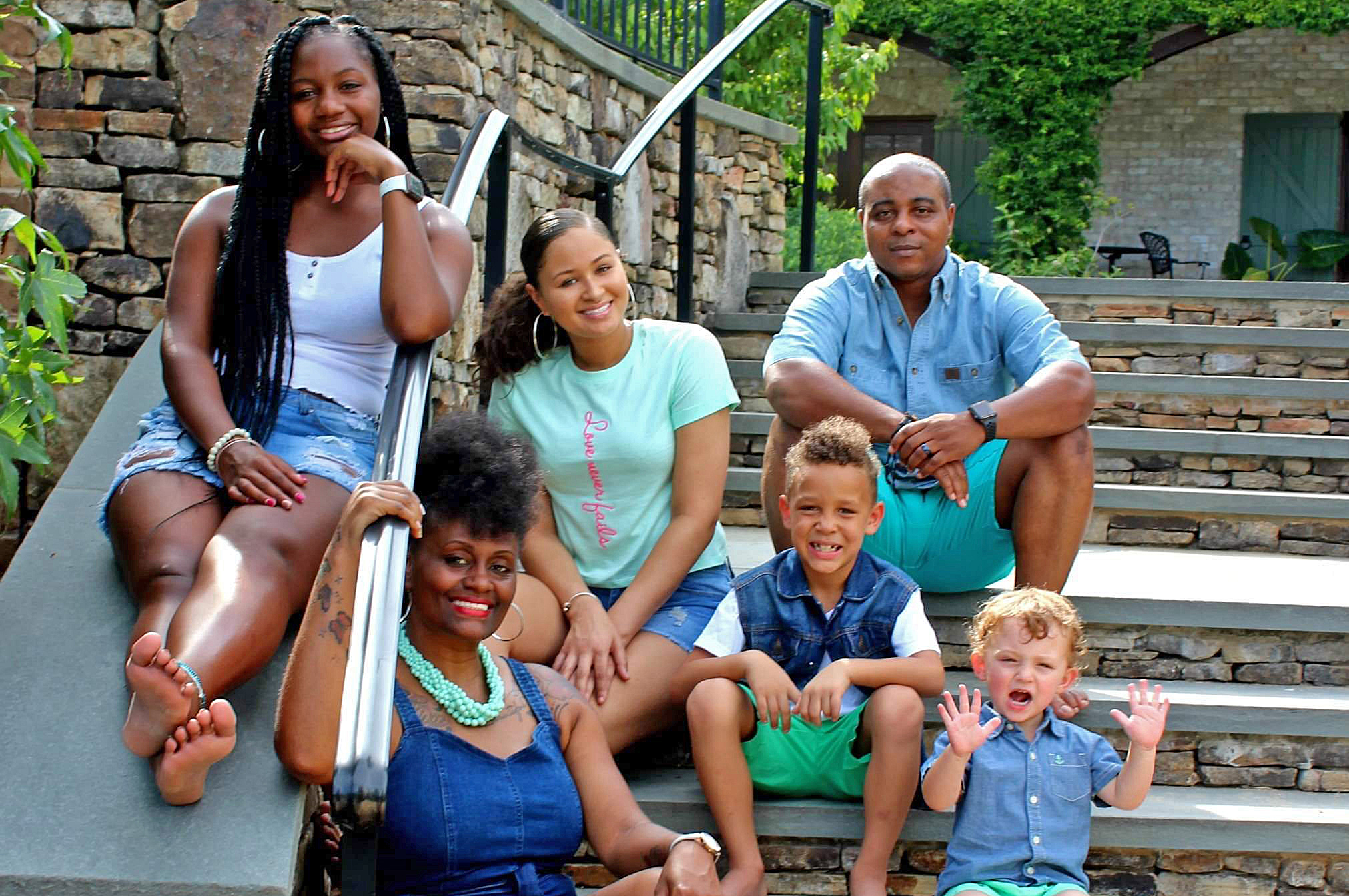
“There is a great need for good foster parents.” This is powerful advice from Mrs. Keia Jones-Baldwin, a nationally known, inspiring adoptive mom to four amazing children, ages 3 to 17. Mrs. Jones-Baldwin and her husband, Richardro, are the creators of “Raising Cultures” which has several very successful social media accounts with hundreds of thousands of followers.
The couple wed in 2010 and looked forward to growing their family, when tragedy struck. Mrs. Jones-Baldwin and her husband experienced heartbreaking miscarriages, which led them to being open to other options to fulfill their dream of having children.
“In 2016, my husband and I started the process of becoming foster parents after hearing an ad on the radio about the overwhelming number of children that were in foster care in our community at the time. When I did my own research and saw there were over 400,000 children in foster care throughout the United States, it broke my heart,” said Mrs. Jones-Baldwin.
“My husband and I knew we had the love, ability, and natural supports to be able to effectively foster. We prayed about it and never second-guessed our decision to move forward with the foster parent classes,” she said. Although some potential foster parents run into road blocks because one spouse isn’t sure, that wasn’t the case for Mrs. Jones-Baldwin, who happily exclaimed, “He never said he wasn’t on board, so I took that as a ‘yes’ and ran with it! When I initially told him about my thoughts on fostering, he listened and said that he’d be willing to try it. I don’t think either of us knew what we were getting ourselves into. It’s definitely an emotional rollercoaster, but so rewarding!”
After experiencing heartbreaking losses of their unborn children, Mrs. Jones-Baldwin wanted to work on healing the pain she had in her heart so that she could be the best she could be for her children. According to Mrs. Jones-Baldwin, “I knew I had to forgive myself in order for me to heal and be able to provide a loving and stable atmosphere for my foster children and biological daughter.”
“Forgiving myself allowed me to let go of all the shame, bitterness, anger, and guilt I had built up over the years of struggling through loss and grief from the miscarriages and not being fully attentive as a wife or mother. Once I forgave myself, I had the faith that whatever God’s will for my life was, so be it. I surrendered and His plan was far greater than I could have ever imagined,” she said.
Shortly after beginning their foster care journey, the Baldwin’s were blessed to care for their first child. “When we got the call for our first placement, we were obviously nervous but excited. We didn’t know any information other than the child was a biracial male toddler.”
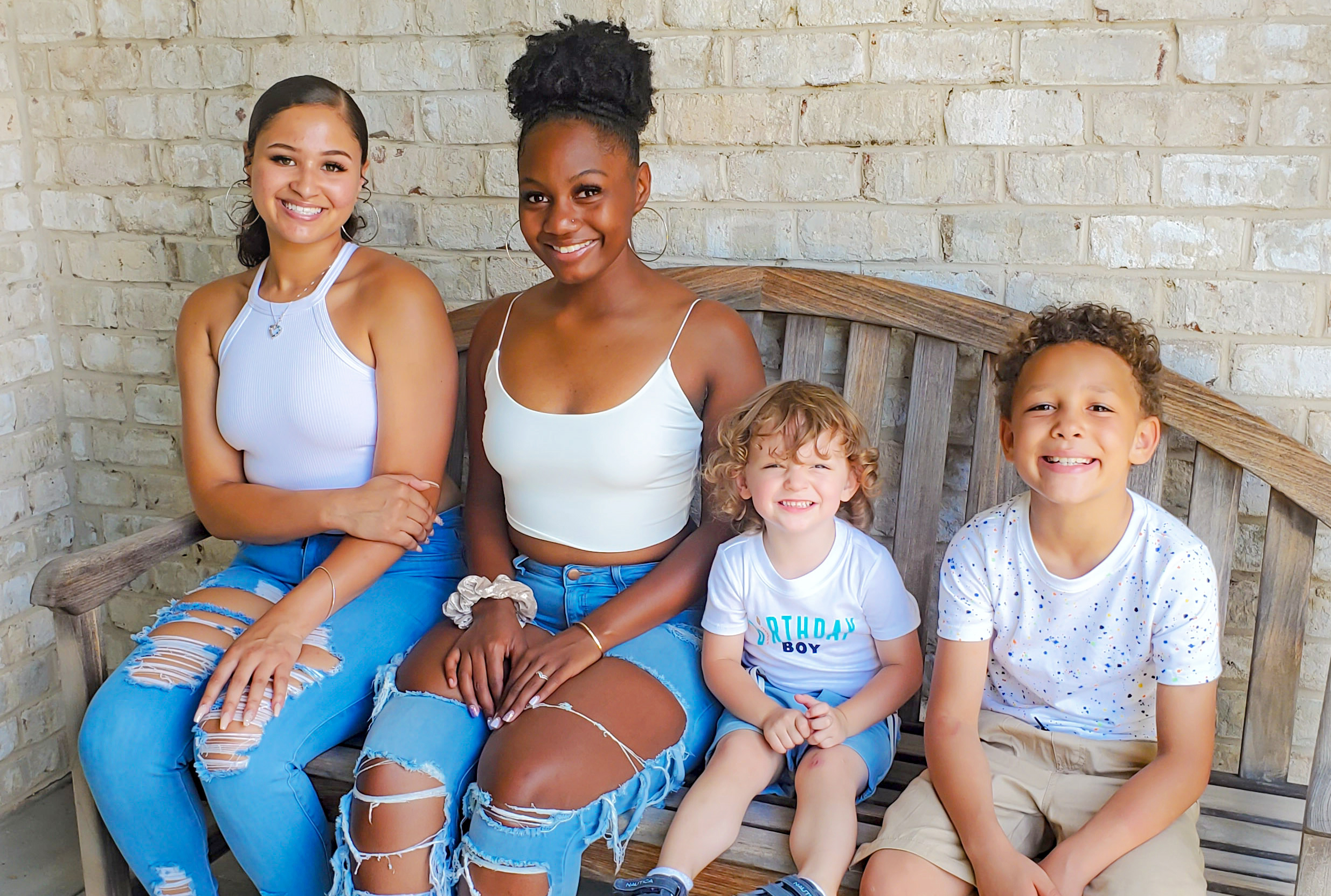
Becoming a foster parent taught Mrs. Jones-Baldwin more lessons about raising children. “The most important lessons I learned that helped me become a successful foster parent is allowing the child the opportunity to heal and be themselves. Don’t try to be, or take place of, “mom.” Give the child the chance to get to know you and determine respectfully how they will address you. Be understanding and compassionate. Allow them to tell their own stories in their own way. Most importantly, keep in mind that the child may not have your same religious, political, or cultural views. It’s not your place to ‘change or convert’ them. It’s your place to support, encourage, guide, and keep them safe until renunciation,” said Mrs. Jones-Baldwin.
As a devoted parent, Mrs. Jones-Baldwin teaches her children important life lessons, including, “Always respect others, no matter their race, gender, sexuality, religion, ethnicity, or culture. Extend grace to others as God has to us. See color, appreciate and celebrate our differences. And no matter what the world may try and tell you, you all are and will always be ‘real siblings!’”
Being a mom to children of different ages, including teenagers, is “hectic,” according to Mrs. Jones-Baldwin. “I’m constantly breaking up wrestling matches between the boys and trying to avoid being in a Tik Tok video with the girls,” jokes Jones-Baldwin. As a mom to two teenagers, Mrs. Jones-Baldwin believes that the myths about teens are not true. “Teenagers already know how to feed, bathe, and are relatively independent! Some of the myths about teens in foster care are, ‘they all runaway or steal, or do drugs.’ That’s not true, most teenagers really want stability and someone to understand their situation without judgment,” she says.
In her own words, Mrs. Jones-Baldwin describes her family as, “A blended, interracial family who is passionate about breaking down color barriers, stereotypes, prejudices, and racism with love.” Although the family is doing admirable work, they have had their share of criticism. “This is definitely not for the faint of heart. You have to be ready to deal with racism, prejudices, hatred, and discrimination in a way that doesn’t compromise who you are as a person,” she said.
“Teach your children that your family is ‘normal,’ and nothing is wrong with celebrating differences.” A revered mother, Mrs. Jones-Baldwin feels very grateful to have her children. According to Mrs. Jones-Baldwin, “They’ve had more of an impact in my life! I did nothing special. I’m sure one day my children will tell me how thankful they are for me and I’ll cry. Until then, I’m just so grateful they call me mom and say they love me!”
For those who are thinking of fostering, Mrs. Jones-Baldwin’s advice is, “Don’t go into fostering if you solely desire to adopt. Adoption is the last resort of the fostering plan and can take years. The goal of foster care is reunification and respect — trust the process. Secondly, build positive relationships (if possible and safe) with the biological parents. You’ll be amazed how much the kids will start trusting you. The kids want to see you embrace and foster a relationship with the bio parent. Under no circumstances should a foster parent bash a bio parent to the child.”
Mrs. Jones-Baldwin and her husband followed the process through to adoption for each of their foster children when reunification with biological family was not possible, and are now officially a family of six.
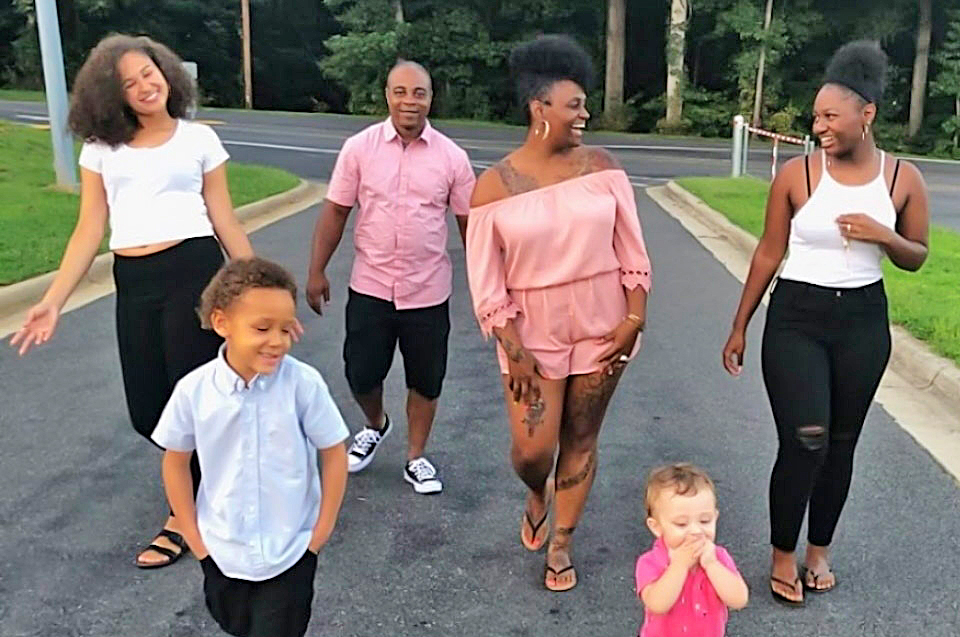
After reaching so much success on social media, and inspiring so many people to foster or adopt, when asked what’s next for 2021, Mrs. Jones-Baldwin said, “Good question! I don’t really know. It still seems surreal to me! I do know that my book will finally be published this year and a new podcast is on the horizon!” To learn more about this amazing family, visit their website.
If you want to learn more about becoming a foster or adoptive parent, please schedule a virtual Foster Care Orientation, by calling 909-825-5588 Ext. 230, or by sending an email to epowers@TrinityYS.org.
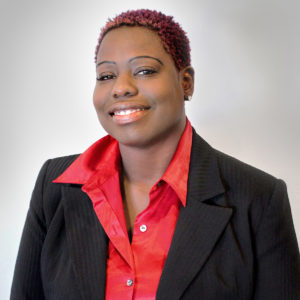 Eve Powers, Foster Care Marketing Specialist
Eve Powers, Foster Care Marketing Specialist
Eve has a strong commitment to helping foster youth and their families thrive and live successful lives. A former foster youth, Eve obtained her bachelor’s and master’s degree in Communications from California State University, San Bernardino, and is a certified Holistic Life Coach, motivational writer, self-help author and celebrity interviewer. Beyond the Trinity Youth Services blog, Eve’s articles can be found in numerous platforms including Foster Focus Magazine, Heart & Soul Magazine, BET Centric and Huffington Post. A passionate advocate for the LGBTQ community, Eve continues to educate, support and mentor foster youth throughout Southern California.
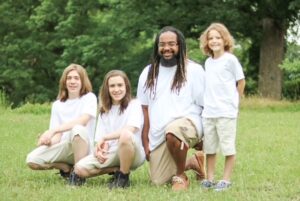
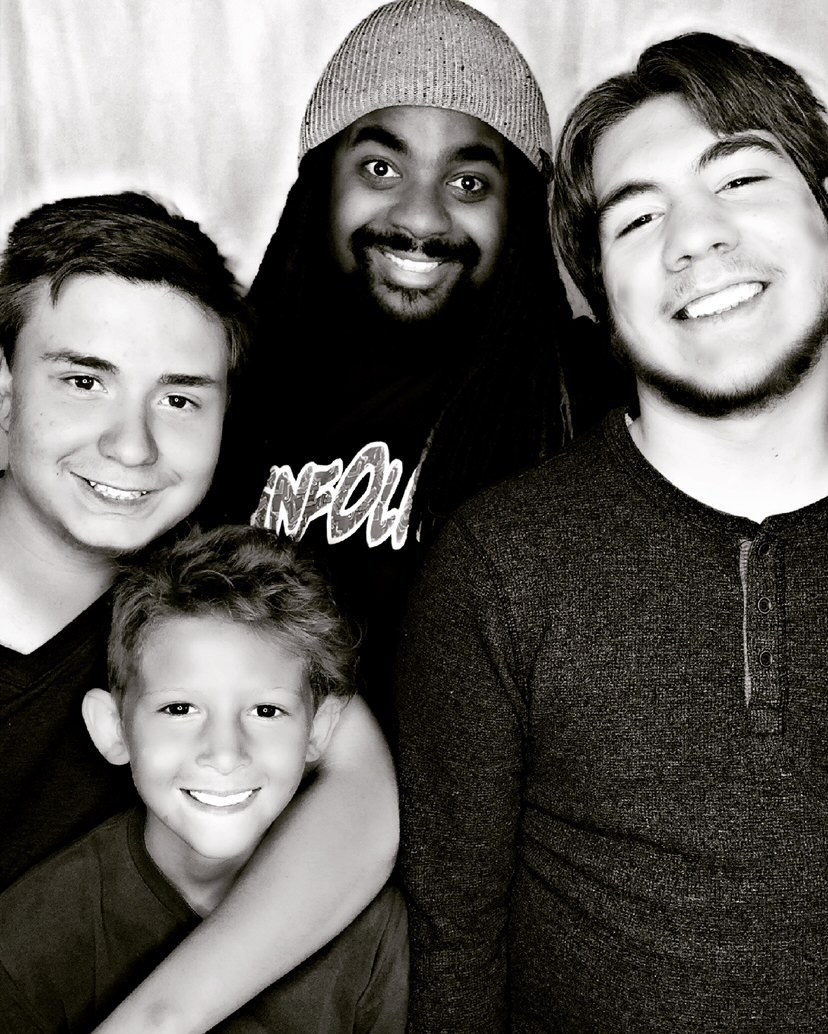 Barry Farmer once believed that he would live a regular life, but at the tender age of 20, he started an unforgettable journey that would set him on a course that would forever change his life.
Barry Farmer once believed that he would live a regular life, but at the tender age of 20, he started an unforgettable journey that would set him on a course that would forever change his life.
“I wanted to live a peaceful, simple life and do the right thing. I was looking forward to becoming a trucker, so I picked up an employment guide. As I was reading through the pages, I saw an advertisement to become a foster parent. To qualify, you had to be 18 years–old. Since I was already working with kids, and I had already lived it by being in kinship care, I thought on it, and decided to make the call,” says Barry.
Although Barry didn’t know what to expect, he was passionate about making a difference. He decided to go through the process of becoming a certified foster parent. “They set up the interview and I met the director of the agency. I didn’t think she would take me seriously, but she did, and I had a great interview. It took a while to get my first placement, but I kept my license active,” says Barry.
Barry’s first placement was a 16-year-old-boy from a group home. Barry recalls, “He was labeled by the agency as being difficult, but we were able to bond and he started calling me ‘Dad.’ He was eventually placed in another home because living in the inner city where I was living, wasn’t a good fit for him.”
Having his first experience as a single foster father made Barry even more determined to help youth and provide stability for them. One month later, he received a call regarding a 7-year-old boy who needed placement. Barry was excited to open his home to another child, but was shocked when his child was different than he expected.
According to Barry, “I was looking for a black kid, but when I got there and walked up to the table, I saw a white kid. I immediately thought, ‘this can’t be the right table.’ But it was. The social worker said he needed to be in a home by himself. I decided to take him in as my own child. I had godsons who came over a lot, so I brought them over to meet him. He was elated to see kids and they got along well. He was never violent or had any behaviors that were not typical of an 8-year-old. He’s now 18 years old, and is one of my adoptive sons.”
Although Barry never intended to adopt, and was committed to sending youth back home with their families after they became stable, he found himself open to the idea after learning it was possible through foster care. When asked if he had any obstacles or challenges about being a single, African American man raising Caucasian boys, he stated, “It’s surprising, but no. I have not had any obstacles.”
“I often talk to other foster parents who are raising children of different races, and they have experienced racial tensions. But when my kids and I go on road trips, visit water parks, or are in public, I have never had anyone approach me, and say, ‘Where did you get them from?'”
Being a single foster-turned-adoptive-father has many perks, according to Barry. What he loves most are the experiences he’s shared with his children, and being their consistent father figure for the last 10 years. He also appreciates having the ability to provide his sons with important life lessons, such as, there are natural consequences of poor choices. He tells his sons that he can’t pull them from the fires they create and that they will work hard and make mistakes.
What Barry loves most about fostering or adopting teens is that there are a lot of firsts. “You can teach them how to drive, take them on a plane, or do other things they’ve never experienced. Unlike younger kids, you can get an honest reaction from them about the things they like or don’t like. So, even though it takes time to build trust and bond with older children, they can at least tell you why things aren’t working,” says Barry.
For men who want to foster, but aren’t sure if it’s right for them, Barry says, “Just do it. Figure out your routine and see if your job is flexible. You can do it if you have a village behind you. I rarely got help from others, because I didn’t want my children to think I wasn’t coming back for them. My younger son once thought that if I had someone else watch him, I wasn’t coming back to get him,” says Barry.
One of Barry’s biggest determinations for being a successful foster father, was thinking, “What would your son think?” He says he used to be a guy who was going nowhere and was working a regular job. According to Barry, “Someone told me that I was beyond working every day for someone else because I had talent. They also told me to stop settling for the clouds and reach for the stars.” Barry did just that, and is now a very successful father. Some of his accomplishments include being the spokesman for Adopt Us Kids, foster care adoption advocate, speaker, mentor, host of The Barry Farmer Morning Show with Sharon Lizzy a nationally syndicated radio show based out of Richmond Virginia and The Foster Care & Adoption Life Talk Web Series, as well as the creator and administrator of one of the largest online support group for foster care and adoptive families. With his show, Barry enjoys connecting with various individuals from across the country, giving them a platform to share their stories and life’s work.
To Barry, 2021 is the year of growth-and is the re-launch of 2020 dreams. Barry’s goals for 2021 is to expand his mission by advocating for older kids. He wants to use his platform to make people aware of the kids who are waiting, so that they will get a chance to find loving homes and live better lives. For more information about Barry Farmer, visit www.barryfarmer.com/.
If you want to learn more about becoming a foster or adoptive parent, please schedule a virtual Foster Care Orientation, by calling 909-825-5588 Ext. 230, or by sending an email to epowers@TrinityYS.org.
 Eve Powers, Foster Care Marketing Specialist
Eve Powers, Foster Care Marketing Specialist
Eve has a strong commitment to helping foster youth and their families thrive and live successful lives. A former foster youth, Eve obtained her bachelor’s and master’s degree in Communications from California State University, San Bernardino, and is a certified Holistic Life Coach, motivational writer, self-help author and celebrity interviewer. Beyond the Trinity Youth Services blog, Eve’s articles can be found in numerous platforms including Foster Focus Magazine, Heart & Soul Magazine, BET Centric and Huffington Post. A passionate advocate for the LGBTQ community, Eve continues to educate, support and mentor foster youth throughout Southern California.

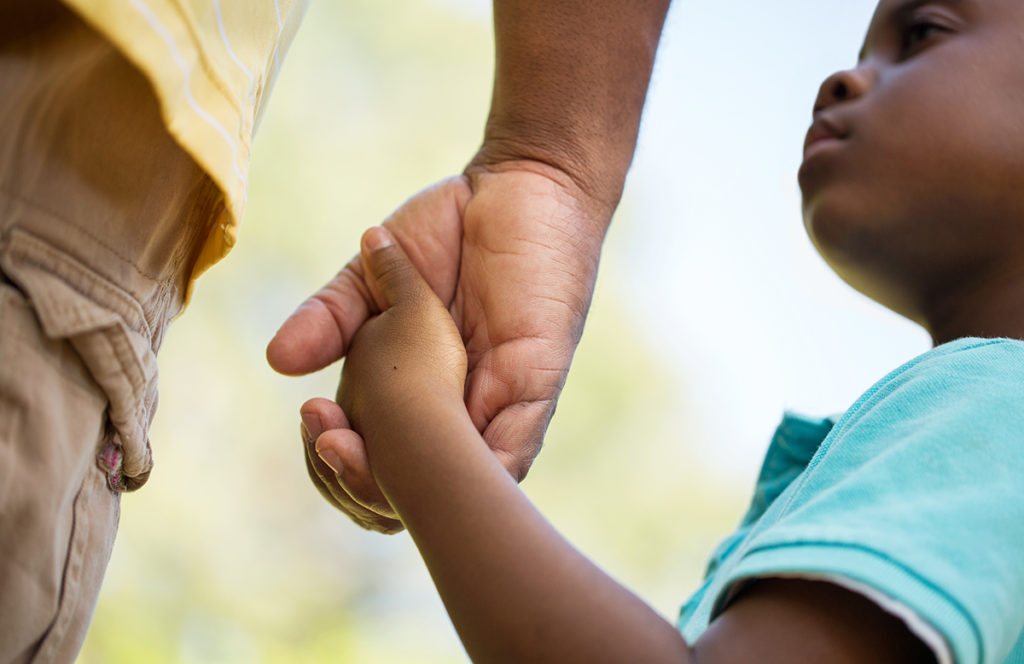
How did you get into fostering and why was it important to you?
I was introduced to foster care in 1988. My mom was a foster parent who turned her home into a group home. She did that for several years and I was her back-up sitter, basically her right hand. I moved away from fostering to pursue college and my life direction changed when I got married and had my own children; it was conducive at that time. Eventually, I began thinking about going back into foster care as my children became teenagers.

Several years later, I made a decision that fostering was something that I truly desired to do. I became a foster parent because there are so many children in the system and there is a viable need for foster parents. I worked in the medical field and we’d hear cases about foster children being removed from home for being abused and neglected. This prompted me to want to go back to being in the fostering system. Knowing there was a need, having the heart to heal and love, and wanting to leave a mark on this earth, all made me want to foster even more.
How long were the children you fostered in your care before you adopted them and what are their names and ages?
The children were in my care for 3 ½ years. Their names are Carl (12) and Donnie (10).
What was the biggest challenge you’ve overcome with your sons?
The biggest challenges we overcame was the boys’ desire to accept love because they didn’t know what love was or what love looked like. The other challenge was teaching them how to appreciate and reciprocate love, as well as manage behaviors due to previous trauma.
How were you able to overcome challenges?
Loving the boys was very easy because love doesn’t stop. Love is patient, love is kind, and love is long-suffering. It’s a continuous action we give to one another, so regardless of what the child says or does, unconditional love is exuberated from me to them, no matter what. My sons had to know that no matter what, I was going to love them, make sure that they were safe and secure and know that I would provide them with stability consistently. Over time, they were able to see that and say, “Oh, she does care about me.” For example, Carl would demonstrate poor choices that would lead into consequences at school which would trigger behaviors. He would say “What I did was really, really bad and you’re not upset with me?” Even though I may have been upset with him on the inside, I didn’t allow my emotions to govern how I responded which could have possibly made him withdraw from me. I still demonstrated love, but I let him know that I was unhappy and disappointed with the choices he made. As far as the behaviors are concerned, having continuous conversations with Carl and Donnie were important; letting them know that they are a reflection of me because they are considered my children, helped them want to do well. I demonstrated love and compassion, and my sons reciprocated it. I’d give them kudos and/or reward them for making positive choices. With love, consistency, and giving a little direction on how things could have been handled differently, my sons did something they’ve never done before and became someone they’ve never been.
Were there any challenges you faced in the adoption process that Trinity helped with?
When paperwork needed to be processed, completed and tuned in, Trinity completed their paperwork and submitted documents to the county without hesitation. They literally walked me through the process and ensured that all processes were efficient and effective. When the County started requesting information from them, they were right on it, so the process went faster than normal. I can say that everything I’ve ever needed, Trinity has always been there. So, walking me through the process, coming out, and giving me reminders were just some of the things Trinity did for me. My social worker, Mrs. Dana has always stood by my side and met my needs when I needed direction, support, or just an ear to listen as well as Mrs. Laura, Mrs. Ashiko, and Mrs. Lupe. In fact, the whole team is always accessible, and that’s the one thing I appreciate. I have not seen anyone on my children’s caseload drop the ball.
What are some of the traits of a good foster parent?
They should possess the trait of being able to see the children as their own children. If they can’t, that will put a barrier between the child and the foster parent because the children will feel it. Be willing to stick it out irregardless of what it looks like in the moment; give the children time because they have been through a lot of trauma and had a lot of things happen to them where they had no choice in the matter. They are not going to recover in one day. Don’t let one incident be the deal breaker for you keeping a child. Continuously pour love into them. Love changes and kills things the babies are inflicted with. Don’t take anything personal. Whatever is said, it is not personal. Children don’t intentionally try to hurt you. Being separated from family, being with someone new that may or may not be family, and enduring challenges they’ve been through, including neglect, can be difficult for them; its a process.
What are some skills good adoptive parents possess?
Take the step to be committed to a child for the rest of their lives, no matter what. Being an adoptive parent is taking on more accountability, but you’ll have the ability to impact lives even more, because you’ve taken the fear of the unknown away from them. To me, adopted kids are your children. The boys and I are closer now. They are proud, happy, and shout from the mountaintops, “This is my mom.” So it’s up to us to show them what family life looks like and break the cycle that is negative. Continue to see them as your children, and everything will work out fine. So, while I have my children, it’s my purpose to help them love themselves, know what love feels like, and know how to have a healthy relationship and demonstrate love to their own family. At some point in time, they’ll want to see their family as the door is open. I’ve left it open for them so they can show their families how to love in a healthy way, build their self-esteem, and break cycles. All these seeds are being planted, and my hope is that once the seed is planted and I’ve watered it, my sons can go back to their families and have a love relationship with them.
How has your life changed since becoming a foster/adoptive parent?
I’ve been obedient to God, and I am employed at the school district, so I have the opportunity to work with the kids at school and be a touchstone in their life. My mission is to love God and love others. I am a Trinity Ambassador, so I get to talk about how awesome Trinity is as an agency. As a foster parent, I attend conferences, mentor kiddos, work with behaviorally challenged children in my home and at work and elevate children to another level. I think I am admired by many because people can see the changes in my children and the impact I have working with children whom may be having or had a difficult childhood. I believe once you have dealt with your own issues thoroughly as an individual, you have a message to give and a story to share with others that can impact the world.
Everyone talks about how the children have changed, and how they’ve grown up. I feel like my purpose is being fulfilled and that’s the greatest gratification. I found a deep-rooted happiness in fostering and nothing can take it away. I’m really appreciative knowing that my purpose is being fulfilled, and I get to watch these babies grow up and become grown men. Even if they don’t stay with me forever, they told me that they’d come back. I had a child who didn’t stay with me, who wrote me all kinds of letters of appreciation, telling me how I touched his life and helped him believe in himself. He walked away believing in himself and knowing he can do anything he puts his mind to do. He was loved and he had a purpose for being in my home as well.
I really believe that it’s up to us to keep kids off the streets, out of jails, and help them stop making poor choices. I believe that God placed it in my heart to save as many of His babies as possible. He challenged me to step out of what was comfortable for me, which was just raising my own kids and my grandchildren. Fostering and adopting is helping me grow, helping the children grow in an effort to live life on life’s terms, and fulfilling my purpose in the world. I want God to be pleased with me as His servant.
To learn more, please call 888-346-9645 and check back for more helpful tips on how you can support your community!
 Eve Powers, Foster Care Marketing Specialist
Eve Powers, Foster Care Marketing Specialist
Eve has a strong commitment to helping foster youth and their families thrive and live successful lives. A former foster youth, Eve obtained her bachelor’s and master’s degree in Communications from California State University, San Bernardino, and is a certified Holistic Life Coach, motivational writer, self-help author and celebrity interviewer. Beyond the Trinity Youth Services blog, Eve’s articles can be found in numerous platforms including Foster Focus Magazine, Heart & Soul Magazine, BET Centric and Huffington Post. A passionate advocate for the LGBTQ community, Eve continues to educate, support and mentor foster youth throughout Southern California.

Jack and Kendrena Fuller didn’t lose hope when their doctor told them they couldn’t have children. The couple, who live in Redlands, CA, decided to do something positive with their circumstances. In 2015, the Fullers decided to become foster parents.
Jackson was placed with them first, a hands-on, smart child who continues to wow the Fullers with his ability to be a fast learner. Then came Elyn, a smiley girl whose joy is to make others smile. Both were just a few weeks old when they came into Jack and Kendrena’s lives. Jackson, now 2, and Elyn, just a little over a year old, are officially Fullers.
“There was a hole for us and they filled it,” Jack said. Kendrena added that she would encourage others to foster-adopt. “It’s an amazing experience and a fulfilling feeling,” she said.

The whole family was present on the day of the adoption hearing and has been supportive of Jack and Kendrena’s foster-adopt journey from the beginning. “They love the children as much as we do,” Jack said. Family members towed balloons, signs and toys for the children, celebrating and cheering on the growing family.
The day was an exciting one for the Fullers. Kendrena described it as “amazing” and Jack said it was also a relief to officially be the children’s parents. However, the Fuller’s story doesn’t end here. Jack and Kendrena are in the process of adopting Jackson’s biological little sister who is just four months old. “They called us from the hospital. We had about five minutes to decide and we went for it,” Kendrena said. “We’re so glad, she’s a sweet girl.”
Watch for our next blog on the Fuller family as we continue the journey from foster care to adoption. If you are interested in becoming a foster or adoptive parent, call us at 888-346-9645 or email info@trinityys.org. You also may begin the process right now by filling out an inquiry form by clicking here.
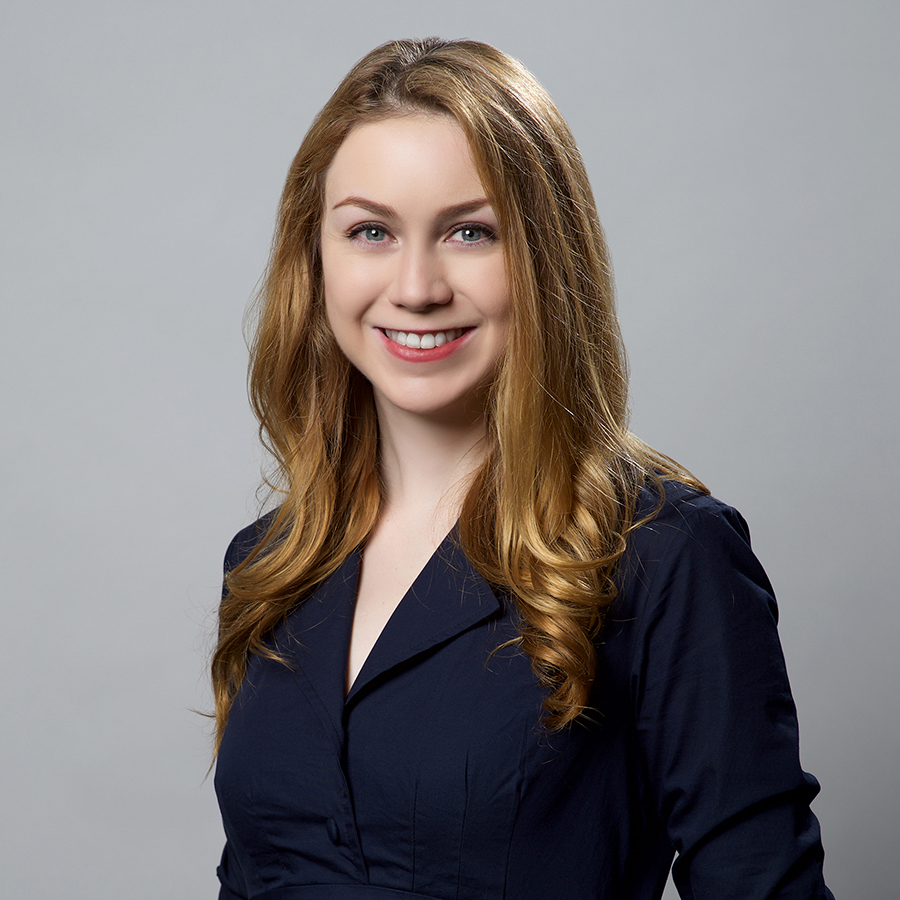
Jenelle Rensch, Marketing and Promotions Specialist
Jenelle maintains a distinctive look and voice for Trinity Youth Services through our online presence, media and community outreach. Before joining the Trinity team in 2016, Jenelle worked in the newspaper/magazine industry for nearly a decade as a graphic designer, photographer, writer and editor. Jenelle earned a bachelor’s degree in visual communications at California State University Fullerton and has won several awards throughout her career including a few from the National Newspaper Association.
Tel: (909) 825-5588 | Email: jrensch@trinityys.org


